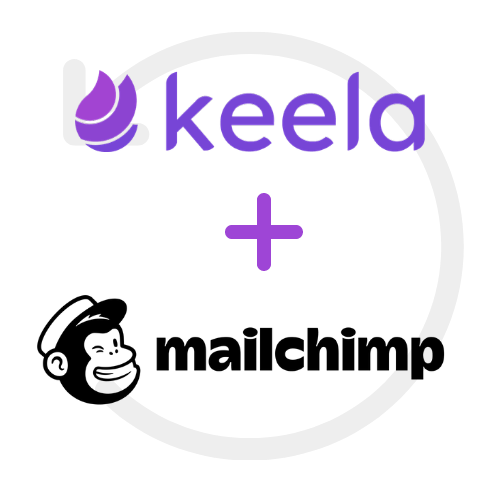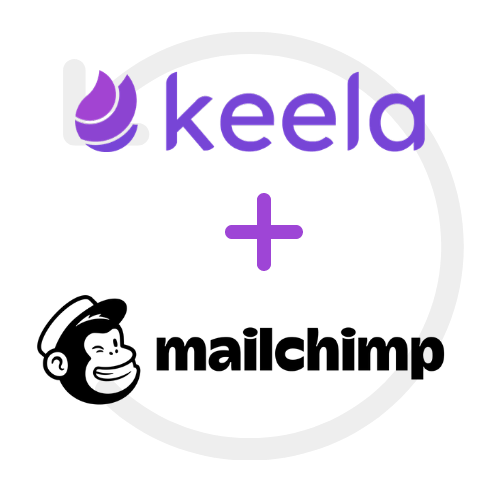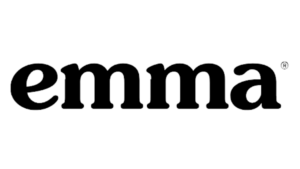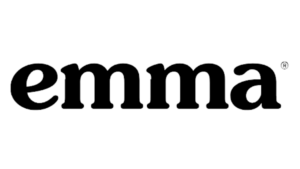How to Choose the Perfect Nonprofit Email Marketing Platform


Email marketing for nonprofits is an incredibly useful channel for connecting with current and potential donors, raising awareness about your cause, and ultimately boosting fundraising outcomes. However, nonprofits have to use the right tools and implement best practices to maximize their email marketing efforts.
While most email marketing platforms offer the same basic features, you could find the right tool for your nonprofit by considering factors like the usability and integrations available to certain platforms. To help you make an informed decision, here’s an overview of all you need to know about finding the perfect email marketing platform for your organization.
9 Considerations When Choosing An Email Marketing Tool for Your Nonprofit
1. Integrations vs. Built-In Email Marketing Tools
As a nonprofit marketer, your nonprofit CRM should be your best friend, and it should either have a built-in email marketing tool or at least be able to integrate with one.
However, going back and forth between an email marketing tool and a donor database could fast become challenging for many nonprofit email marketers. That’s why we recommend using a nonprofit CRM, like Keela, that offers email marketing services amongst other donor engagement and management features.
The alternative to this is integration. If that’s your path of choice, ensure that the email marketing tool that integrates with your nonprofit CRM allows you to segment your donor lists and send targeted email communication. If you’re still managing your donor database on a spreadsheet, choosing a CRM with a built-in email tool will set you on the right path for growth and save you time spent learning about two different platforms.
The bottom line is that you need your nonprofit CRM and email marketing tool to communicate with each other and avoid fragmented communications and siloed data.


Use this Guide to Determine the Best CRM for Your Nonprofit
This complete guide will help you evaluate your needs and shortlist CRM vendors so you can invest in the right tool for your organization.
2. Nonprofit Email Templates
An email template is a preformatted email that you can use to build your own email campaigns.
Most email marketing platforms come with a library of ready-made email templates. When shopping around for a tool, take a look at the templates and see if the design and feel fit with your campaign style.
If you choose an email marketing platform tailored to nonprofits, you can choose from templates specifically made for fundraising appeals, campaign newsletters, and nonprofit event marketing.
Most importantly, the templates should be optimized for mobile devices. Campaign Monitor reported that nearly 77% of emails are opened on mobile devices. Failure to properly display your call to action correctly for mobile viewing can be detrimental to your campaign.
3. Ease of Use
Your nonprofit email marketing tool should be easy and intuitive to use without requiring technical knowledge or HTML coding. The best email marketing tools offer a drag-and-drop builder so you can easily create branded email templates and revisit them for future use.
Before making a purchase, make sure you put your three top choices through a trial period to test them out and see how user-friendly they are.
4. Personalization
A good nonprofit email marketing platform should allow you to personalize your email communications. This means you can automatically add donors’ names, titles, organizations, and any specific custom fields to send hyper-targeted messages.
Send Personalized, Engaging Emails using Keela
Get a glimpse of how Keela’s suite of email marketing tools can help your nonprofit to build and send engaging emails to your donors and supporters.
Considering 78% of recipients reported that personalized content increased monetary intent – this is a must-have feature to get the most out of your marketing efforts. If that’s not enough to convince you:
- 71% of email users said they are more likely to open personalized emails
- There is a 202% better conversion rate from personalized calls to action
- 760% increase in email revenue from personalized and segmented campaigns
5. Segmentation
You should be able to segment your email database. Segmentation allows you to create subgroups depending on your contacts’ donation history, engagement levels, age demography, location, etc. For instance, using Keela, you can create an LYBUNT list (donors who donated last year but not this year) and send a re-engagement email to encourage them to give again.
6. Deliverability
The email deliverability score indicates whether your emails will land in subscribers’ inboxes or spam folders. The last place you want your beautifully crafted newsletter to land is in the spam folder.
To reduce the chances of this happening, you should improve your nonprofit email’s sending reputation, segment your donor database, send relevant content to each segment, and authenticate your domain.
7. Automation
Email automation features allow you to send targeted messages to donors when predetermined conditions have been met. For example: When a supporter subscribes to your nonprofit’s newsletter, your email marketing tool can send them an automated welcome email without you lifting a finger.
Keela Automation allows you to personalize your subscribers’ experience and boost the chances of your recipients taking action on your email. Even more, it can go a long way to improve your donor retention rate by ensuring donors receive the right communication at the right time. This frees up valuable time and resources for your nonprofit team.
8. Reporting
Measuring data and results from your email marketing campaigns is essential to making informed nonprofit marketing decisions. You need access to email metrics and data to help you evaluate your email marketing performance and hone in on strategies and resources that will boost your return on investment (ROI).
When exploring software for your marketing campaigns, you should be able to track key performance indicators (KPIs) such as open rates, click-through rates, unsubscribe rates, and delivery rates. These important metrics will allow you to stay on top of your donor engagement and email marketing performance.
9. Pricing
The good news is many email marketing tools offer nonprofit discounts, so make sure you ask for it before making a purchase.
Then, look into each pricing plan carefully to see if there are additional feature charges. Some platforms offer plans based on the number of emails you send, while others charge based on your total number of contacts or the number of team members who will have permission to use the tool.
5 Email Marketing Platforms for Nonprofits
With so many options for email marketing platforms on the market, it’s important that you choose a platform that is specially designed for nonprofits.
Here are our picks for the best email marketing tools for nonprofits:
1. Keela: The All-In-One CRM For Nonprofits
Combining email marketing and donor management features into one platform, Keela’s CRM is built specifically for nonprofits. This platform allows users to leverage their donor data to segment their contact lists, craft visually appealing email content, and send targeted emails.
Keela’s email marketing tool doesn’t require any technical knowledge. You can use the drag-and-drop builder to create and send custom-branded, mobile-responsive emails to your donors.
The real strength of Keela lies in its AI-powered tools. Keela’s smart donor insights help you predict the best time to ask a contact for a donation and how much you should ask for. These insights are based on the donor’s giving history, and they are a gold mine for email personalization and fundraising campaigns.
Using Keela, you can authenticate your email domain to improve deliverability and ensure your emails always land right in your supporters’ inboxes and not their spam folders.


Standout Features
- Nonprofit branded, mobile-friendly templates
- AI-powered personalization tools
- Custom email domains
Key Integrations
Pricing
Plans include features that give you access to its CRM and email marketing tool. Starting at 90 USD and 100 CAD a month, Keela’s pricing is based on the number of contacts you have in your database.
2. Mailchimp for Nonprofits
If you started shopping around for an email marketing platform, you’ve probably heard of Mailchimp. Mailchimp is one of the most accessible email marketing services and a great option for small nonprofits with limited resources. It’s easy to use and simple enough for someone who’s just getting started with email marketing.


Keela integrates seamlessly with Mailchimp so you can reach more donors and supporters.
Mailchimp offers a wide range of features, including pre-built templates, segmentation, and custom domains. One of our favorite features is the single-step automation, allowing users to automatically send welcome emails to new subscribers. You can also run A/B testing to test subject lines or email copy, but keep in mind that this feature is not included in its basic plans.
If you can’t integrate MailChimp with your current nonprofit CRM or donor database, you will have to import your contact lists manually into the MailChimp system. This can be a cumbersome process, so keep that in mind as you make a decision. If you’re interested in using Keela as your nonprofit CRM and Mailchimp as your email marketing tool, you can learn how Keela integrates with Mailchimp here.


Standout Features
- Highly customizable email templates
- A/B testing
- Over 800 integrations are available
Key Integrations
Pricing
You can use the free version of Mailchimp or may be eligible to receive a 15% discount on paid subscriptions.
3. Constant Contact: The Best Deliverability Rate
Constant Contact is one of the longest-running email marketing software platforms on the market. This email platform offers over 100 customizable templates to choose from and gives you access to thousands of free stock images that you can use in your emails.
Constant Contact offers one of the highest deliverability rates in the industry. It’s also a useful tool for promoting events, given its unique features that allow users to manage event invitations, registrations, and tickets. That said, Constant Contact may not be your preferred platform if you need to set up automated email campaigns.


Standout Features
- Branded templates
- Gallery of stock images
- Event management
Key Integrations
Pricing
Constant Contact offers a 60-day free trial. After that, you can choose from two pricing plans. The basic “Email” plan starts at $20, and the “Email Plus” plan starts at $45 a month.
4. ActiveCampaign: Advanced Automations For Experienced Users
ActiveCampaign is a great tool for experienced email marketers who want to have complete autonomy and flexibility over their campaigns. It’s more complicated to use than most email marketing solutions so it’s not suitable for novices.
Their bread and butter is marketing automation. From simple autoresponders to complex nurture campaigns, you can create specific sequences to engage your supporters and donors at every stage of their journey.
ActiveCampaign also enables you to create segments based on multiple, very specific conditions. So if you’re looking for high-level personalization, this is another great tool to consider. Finally, their drag-and-drop builder allows you to test how your emails would look across different devices.


Standout Features
- Automation workflows
- Advanced segmentation
- Email preview for mobile and desktop
Key Integrations
Pricing
ActiveCampaign’s entry-level plan starts at $15 per month. They also offer a Plus Plan—starting at $70—that gives access to a built-in CRM. However, these features are more suitable for businesses rather than nonprofits.
5. Emma: Email Marketing For Nonprofits
Emma’s easy-to-use email marketing platform provides a seamless brand experience for your organization and allows your team to collaborate on developing engaging campaigns. With features like automation, segmentation, A/B testing, landing pages, a drag-and-drop editor, mobile design mode, forms, analytics, and integrations, this platform has just about everything you would need to craft and send beautiful emails that resonate with donors.


Standout Features
- Drip Campaigns
- Event Triggered Actions
- Spam Blocker
Key Integrations
Pricing
Emma has three pricing plans to choose from a PRO plan that starts at $89 per month, a PLUS plan which starts at $59 per month, and an EMMA HQ plan which starts at $279 per month.


Ready to Transform Your Email Marketing Strategy
Use this free guide to gain an understanding of five key email marketing metrics, and how they work together to help you craft meaningful email content that converts.





